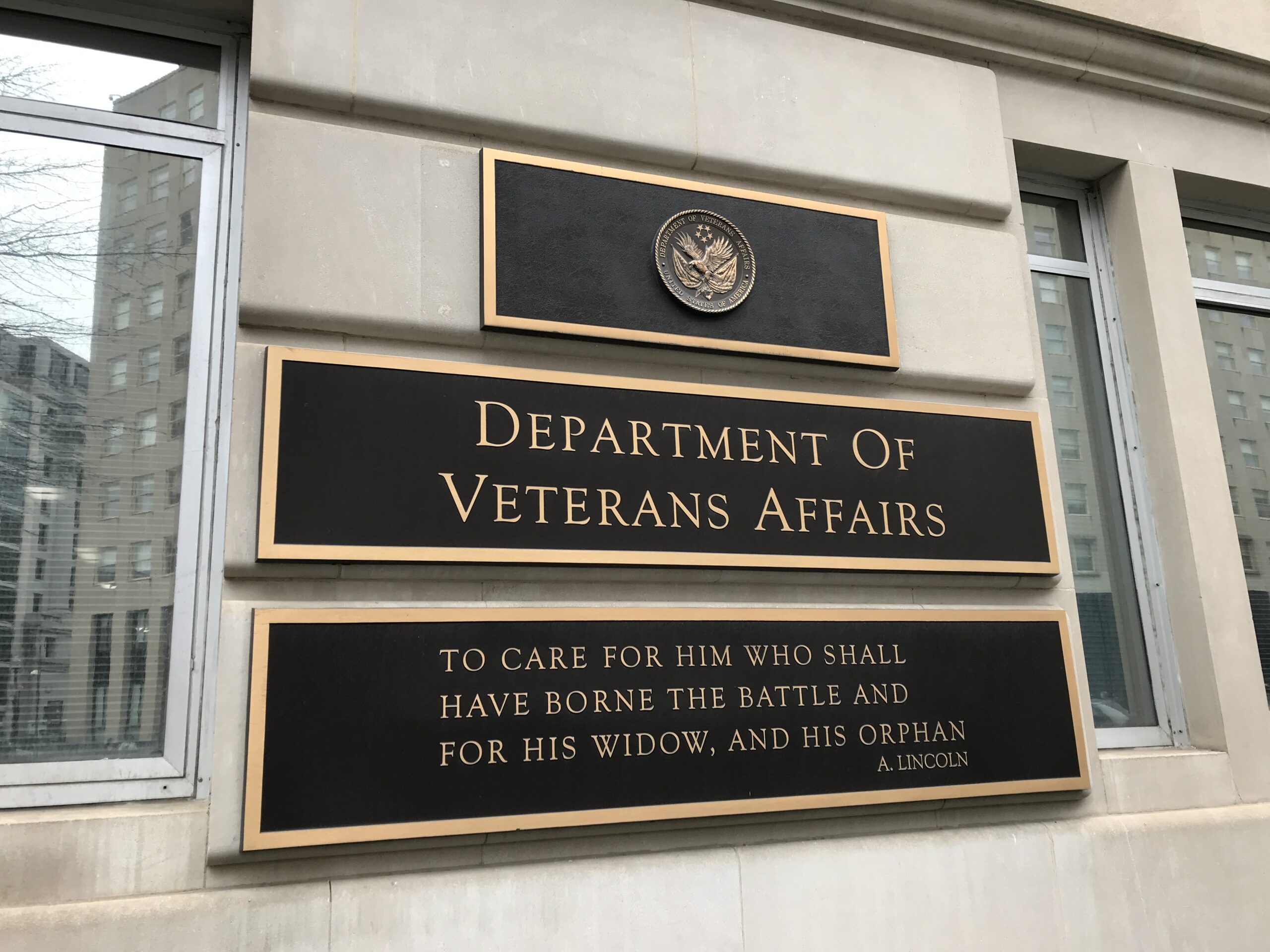
The DOGE Impact Tracker
The human toll of Trump-Musk's 'efficiency' initiative
Health Care Cuts Could Hit North Carolina Program That Helps Students in Recovery

A recovery program for college students at the University of North Carolina Wilmington could lose thousands of dollars in grant funding, reports StarNews Online:
The program supports students in recovery from substance abuse, students seeking recovery and those affected by someone else’s addiction, [communications manager Krissy] Vick said. It is one of 14 recovery programs in the University of North Carolina school system…
More than $230 million in healthcare funding is at risk in North Carolina alone, according to a statement from the N.C. Department of Health and Human Services.
“The federal grant funding impacts a number of areas of work including immunization efforts, funding for the new N.C. Immunization Registry, infectious disease monitoring and response, behavioral health, substance use disorder services and more,” the department stated. “We are currently working to determine the depth of impact, but we are certain this will result in the loss of more than 80 jobs and at least $100 million for the department with more than $230 million in funding at risk that directly contributes to the health, safety and wellbeing of the people we serve.”
Cuts in Funding to Alabama Health Agency Impact Renovations, Equity Program

A health officer for the Mobile County Health Department in Alabama says that funding cuts will impact the agency’s infrastructure upgrades and renovations, reports Fox 10 News:
Health Officer Dr. Kevin Michaels said the department has received roughly $23 million over the last few years, and it was expecting that money to be phased out over the next year and a half. Now that it’s come to a sudden stop, he says one of the biggest impacts will be to some ongoing infrastructure upgrades and renovations.
“Majority of the work was completed, but there’s a tail end that won’t be covered so we’ll have to come up with the money to finish out the contracting,” said Dr. Michaels.
Dr. Michaels says the department was able to move some employees around while others were let go once the funding stopped. One of the bigger programs that took a hit was the health equity program, which established relationships with people who didn’t get important information that they needed.
Cuts to Clean Air Grants Raise Concerns in Charlotte’s Black Neighborhoods

Grants to monitor air quality in four communities near Charlotte, North Carolina, that have high pollution exposures due to nearby energy plants worry residents, reports The Charlotte Observer:
Organizations like CleanAIRE NC are worried too. The Charlotte-based nonprofit installed air monitors in McCrorey Heights in 2024 through a $75,000 EPA grant awarded in 2021. But a $500,000 EPA grant last year to help with similar efforts in north Mecklenburg County has been frozen by the feds.
That grant was for monitoring air quality in four communities which have higher pollution exposures because of energy plants near them: Smithville in Cornelius; Huntington Green and Pottstown in Huntersville; and West Davidson in Davidson…
The coalition is also trying to check if lead paint is in homes. But funding for testing and removal nationally has been pulled by the Trump administration too, according to [community activist Lisa] Mayhew-Jones and published reports.
“I know some people don’t think about the environment and the health of people, but pulling back these funds can cause issues for folks,” Mayhew-Jones said. “We have a lot of seniors with fixed incomes. That means more health challenges and more health costs without being able to do these studies and have clean air.”
USDA Cuts Especially Hurt Small Farms in Iowa and Other Rural States

Anna Pesek saw a federal program supporting local food purchases as much more than a boost to her Iowa pork and poultry farm.
But now that the Trump administration has yanked the funding, she worries that rural economic boost might end too.
“With the razor-thin margins on both sides, those partnerships are just really hard, if not impossible, to sustain,” she said.
The co-owner of Over the Moon Farm, Pesek said her operation was never entirely reliant on the local food programs; it represented about 10% of her business. While she knew the federal money wouldn’t last forever, she was planning on the funding lasting through 2028 — but then the Trump administration last month nixed more than $1 billion for local food programs.
With Destruction of the Consumer Financial Protection Bureau, Fraud Victim ‘Not Hopeful’ He’ll Be Refunded

On Jan. 16, the Consumer Financial Protection Bureau (CFPB) ordered the operator of digital payment provider Cash App to pay $175 million for failing to protect consumers from fraud, including $120 million in refunds and a $55 million penalty to the agency’s victims relief fund.
Four days later, Donald Trump was inaugurated as the nation’s 47th president. Within a week and a half, the new administration fired CFPB director Rohit Chopra, shuttered the agency’s headquarters and sent employees home…
Meanwhile, Cash App’s victims have been left hanging, still waiting for their money.
Among them is Terry Ouverson, a 73-year-old retiree living with his wife in Spotsylvania, Virginia.
They were the victims of fraudsters who scammed them out of $45,000 on Cash App and PayPal last year…
But he’s not optimistic about getting the money owed him by CashApp, though he filed a complaint with the Consumer Financial Protection Bureau in October 2024.
“I am not the least bit hopeful that Cash App will actually come through on this,” he told Capital & Main, explaining that the company ignored his repeated complaints until the agency got involved.
Seattle’s Head Start Headquarters Abruptly Shut Down

The headquarters for Head Start, which offers free education to low-income children, was closed and six employees laid off, potentially impacting tens of thousands of families in the region, reports KING-5.
It also helps women escape domestic violence and homeless families find shelter. It is often the last safety net for desperate parents and their kids simply looking to survive.
There are 450 Head Start families in Snohomish County [Washington] alone.
“If a family is worried about where they’re going to get their next meal or a roof over their heads, they’re not going to be thinking about whether their child knows the alphabet or numbers. No,” said program Executive Director Ginger Williams. “They’re in crisis mode.”
DOGE Cuts Funds for South Dakota Nonprofit That Gives Free Books to Students

The South Dakota Humanities Council, a nonprofit that gives free books to students in the state, told KELO that all of its federal funding from the National Endowment For The Humanities had been cut.
Per the report:
Executive director Christina Oey says there was little warning that funding for the organization was on the chopping block, and now the non-profit needs to make cuts of its own.
“The first one that to me personally is most concerning is our young readers book. Our Young Readers Program provides a free book to every single third grader in the state of South Dakota. And so with these cuts, we don’t know if that’s going to happen anymore,” Oey said.
Oey says it gets $950,000 from the federal government which is 73% of its operating budget. The rest comes from donations.
DOGE Cuts to USA Are Impacting Food Banks in Kansas
The USDA’s cuts to the Emergency Food Assistance Program [TFAP] is hurting food banks such as Harvesters in Kansas, reports KSNT News:
“This comes as Kansas food insecurity is the worst it’s been in a decade.”
Elizabeth Keever, the chief resource officer of Harvesters, told the station:
“This is food that would have otherwise gone directly into the hands of our neighbors and now is completely canceled. And we don’t know the status of it.
Last month, 18,500 neighbors received TFAP products in the region. Those folks this next upcoming month are going to have 30% less food to take home.”
USDA Cuts Impact Food Banks in Florida

The U.S. Department of Agriculture’s termination of the Local Food Purchase Assistance program, which funded food banks across the country, will impact the Tampa Bay community, reports Fox 13.
Thomas Mantz, president of Feeding Tampa Bay, which supplies food to 350 community partners, tells the station that the program paid for about 4 million meals a year, a not insignificant share of the 100 million meals they serve annually:
The idea that there are less resources coming into the community to help those families is going to be difficult for us to manage.
We understand that decisions get made for a variety of reasons, but what we always want to make sure is that folks understand the impact of those decisions.
Injured Vet Faces Crisis After Getting Fired By the VA

Among the thousands of workers fired at the Department of Veterans Affairs is Joy Marver, who told the New York Times how she checked herself into a hospital for emergency psychiatric care a day after being locked out of her office at the agency.
In addition to her personal story, she is worried about the ripple effect of such cuts on the agency’s ability to provide health care to veterans:
She said she was worried about layoffs affecting the doctors she relied on at the V.A.: the specialist who treated her T.B.I. [traumatic brain injury], the neurologist who managed her migraines, the therapist with whom she relived the rocket attacks, and the psychiatrist who rushed out of a meeting to see Marver as soon as she crossed the bridge, consoling and hugging her until she finally stopped shaking.
The V.A. had been scrambling to hire psychiatrists for years to make up for what it called a “severe staffing shortage” as veteran suicide rates rose to epidemic levels, but now a few new ones had been fired by DOGE because they were still probationary employees. Each V.A. psychiatrist was already responsible for 500 patients, and lately those patients had begun reporting increased rates of anxiety and stress because many of them were also employed by the federal government.
“Nobody wants to serve this country more than veterans,” Marver said. “It’s personal for us.”
“That’s why I love working here,” her doctor said.
USDA Cuts Hit Food Banks Across the Country: ‘This Is Just the Tip of the Iceberg’

“I always tell people, ‘It’s gonna get worse before it gets better’ and people look at me like, ‘What do you mean? It can’t get any worse.’ Well, yeah, it can get worse, and this is just the tip of the iceberg.”
Mike Robinson is at his computer, assessing his inventory for the next three months at the food pantry he runs in Brazil, Indiana. The Clay County Emergency Food Pantry fed 33,000 families with 54,000 pounds of food last year, said Robinson.
He’s worried about the next six months due to U.S. Department of Agriculture cuts to food banks and food pantries around the country. “A lot of these pantries are not going to survive. We’re financially in good shape so far. But many of them survive week by week,” he told Capital & Main. Robinson is also concerned that the cuts are “going to affect farmers and meat producers and so many others in the community.”
So far, the USDA has cut more than $1 billion in assistance by ending two pandemic-era programs — $421 million for the Local Food Purchase Assistance Program, which enabled states to buy food from farmers and give it to groups that help communities in need, and $660 million for Local Food for Schools, which allowed states to buy food for schools and child care facilities. In addition, it halted $500 million in deliveries to food banks via the USDA’s Commodity Credit Corporation pending a review, the agency told CNN.
The impact is being felt across the country, challenging food banks already struggling to meet higher demand, with hunger rates increasing in recent years amid inflation and the end of pandemic-era assistance programs. In 2023, 13.5% of Americans said they struggled with food insecurity — the highest rate in nearly a decade.
Fishermen, Seafood Processors Who Count on Federal Funding Say It’s Frozen
Commercial fisherman and seafood processors in Maine say that federal funds they get for converting to more sustainable business models have been unavailable due to budget cuts.
Togue Brawn, owner of Dayboat Blue and who has worked in commercial fishing for over three decades, told the Associated Press that “she received a little more than half of a USDA grant of about $350,000 before learning the rest might not arrive.”
In a blog post, she wrote:
We launched the program in December 2024 and were just starting to promote it when I received some surprising news: After multiple unanswered inquiries into the status of the program, I was told last week that only those costs incurred on or before January 19th 2025 were being processed — never mind the contract that states otherwise. This means roughly $30,000 I’ve already spent and was expecting to be reimbursed for immediately is currently in limbo. I don’t know when or even if I’ll receive it, and I don’t know if I’ll receive any of the contractually-agreed-upon funds I’d counted on to promote Dayboat Blue.
Needless to say, this is a stressful situation. I’ve been able to borrow from my retired school teacher mother and I’m happy to say some of the regular customers from the bar I worked at until recently have also helped me out so I don’t have to lay off my employees (yet). It’s still stressful, but I’m going to turn a negative into a positive.
Cuts to the VA Concern Vets in Wyoming, Where Suicide Rate Is High

The firing of probationary employees at the VA, including the manager of a small center in Cheyenne, has veterans in Wyoming concerned about their mental health needs, reports Channel 9 News:
The veteran suicide rate in Wyoming is 50% higher than the rest of the country.
In Cheyenne, there’s a small VA center dedicated just to mental health. On Feb. 24, the office manager was fired. A Marine veteran, she was one of thousands of probationary employees fired by email for their performance.
But a recent [performance] review obtained by NBC News was glowing, her manager writing: “As a veteran herself, she listens with empathy. She is the first person our clients come into contact with.”
“I would be concerned with positions that are front-line positions that touch veterans every day,” said Justin Tripp, a 13-year Navy vet who is the state commander for the VFW.
How DOGE Cuts at USDA and USAID Are Hurting Farmers: “Very Unsettling and Very Stressful”

“It’s very unsettling and very stressful,” said Ben Palen, while driving his truck in rural Kansas. He’s a fifth-generation farmer whose family has been working the land since 1855. And he’s alarmed by the Trump administration’s recent cuts to programs at the U.S. Department of Agriculture and USAID.
In the last two months, the Department of Government Efficiency, led by billionaire Elon Musk, has eliminated USDA programs to encourage better conservation practices and the USAID’s Food for Peace program, which put money in the pockets of many farmers across the country.
“They get money from the government to reimburse them for certain conservation practices,” said Palen, whose family has a 15,000-acre farm that grows wheat and raises cattle. “The farmer puts up the money first and they expect to see it repaid. And right now, there’s a real question of whether they’ll be reimbursed. And they are pretty nervous.”
Most of the programs are aimed at changing irrigation practices to use less water, or to change farming programs to use less fertilizer and to keep a cover crop on the soil, Palen told Capital & Main. “They come out and give you advice on how to take care of the land, and that’s really valuable.”
He noted that the $2 billion Food for Peace program, which bought crops from farmers to feed the hungry around the world, “is a big market to lose, and the credibility of the U.S. is really coming into question around the world. People here and abroad have counted on this program.”
Disabled Vets Tell Their Stories of Firings and Service Setbacks
This week, Disabled American Veterans launched a new initiative to “solicit and highlight the stories of disabled veterans and spouses who have experienced service setbacks or been fired from jobs across multiple federal agencies as part of the White House and Department of Government Efficiency’s (DOGE) efforts to downsize the federal government.”
The group’s national commander, Daniel Contreras, says: “It’s heart-wrenching to hear from veterans who are contacting us with fear and anxiety about the future of the benefits, services and health care they’ve earned.”
Among them is Mandy Midgett, an Air Force veteran who was fired from the Federal Aviation Administration, who posted a video in which she said:
“This takes a toll on my emotional health since I have led a life of service and giving back to the American public. It is also my primary source of income, and now I will be cutting out some things in my life to ensure I can pay my bills.”
Fired Federal Employees in Oklahoma Struggle to Pay Bills

Government workers in Oklahoma City who were fired in recent weeks are struggling to pay their bills, reports the Wall Street Journal:
The Oklahoma City metro area alone has roughly 30,000 federal workers who help inspect meat, staff prisons, fix military planes and train air-traffic controllers. They are among [the] 80% of the U.S. government’s 2.3 million nonpostal and nonuniformed employees who live beyond the Beltway, including many who are concentrated in certain regions by military bases and collections of federal offices…
Chris Dowling lost his accounting job at the Internal Revenue Service in Oklahoma City as the Trump administration cut more than 7,000 IRS workers nationwide, as part of the Department of Government Efficiency’s efforts. Landing the job last year helped the 32-year-old invest in property where he hoped to raise 40 cattle. Now he is contemplating how he will handle a $36,000 land payment due later this year.
“It was far and away the best balance of a fulfilling career that was challenging as hell, but was also going to be stable and could swing a family in middle America,” said Dowling, who has an 11-month-old child
Food Banks in North Carolina Hit By Funding Cuts

The Department of Agriculture reportedly informed North Carolina officials that it will no longer fund the state’s Local Food Purchase Assistance Program — which helps fund food banks like the nonprofit Food Bank of Central and Eastern North Carolina.
The food bank’s CEO, Amy Beros, told WUNC that
the $2 million in federal funds the nonprofit would have received would go directly to farmers for the purchase of fresh food that’s then distributed across the 34 counties they serve…
“Please reconsider this program,” she said. “These are our farmers. These are neighbors across our counties that are in need, and this is going to [have] a huge impact economically.”
Moving forward, the organization is looking for possible state funds to help mitigate the loss. In the 34 counties that the Food Bank of Central and Eastern North Carolina serves, Beros said hunger has been steadily increasing in recent years.
Hundreds of Affordable Housing Projects Imperiled by HUD Cuts

The Trump administration’s decision to stall at least $60 million in funding for affordable housing developments across the country is hitting small community nonprofits that use the money as seed funding for projects.
According to The Associated Press:
Congress chose three nonprofits to distribute the grants, but HUD said in letters that it was cancelling contracts with two of the organizations, which together were to distribute the $60 million. That’s pushed millions in funding already promised to small nonprofits, or yet to be awarded, into the twilight zone.
“Many of those organizations have already committed funds to pay workers, such as HVAC [heating, ventilation and air condition] technicians, local contractors, homeownership counselors,” said Shaun Donovan, CEO of Enterprise Community Partners and former HUD secretary under President Barack Obama. Enterprise is one of the two groups whose contracts were cancelled…
The Local Initiatives Support Corporation is the other group whose contract was cancelled. “Without access to this seed capital, housing projects for hardworking families will stall, worsening shortages and pushing distressed neighbors into overcrowded conditions or homelessness,” it said in a statement.
Wisconsin Farmers Hurt by Freeze on Grants From the USDA

Cuts to grants at the USDA are impacting farmers, some of whom recently came out to a town hall in Hager City, Wisconsin, according to the Wisconsin Examiner:
Emmet Fisher, who runs a small dairy farm in Hager City, said during the town hall that he was struggling with the freeze that’s been put on federal spending, which affected grants he was set to receive through the U.S. Department of Agriculture (USDA).
Fisher told the Examiner his farm has participated in a USDA program to encourage better conservation practices on farms and that money has been frozen. He was also set to receive a rural energy assistance grant that would help him install solar panels on the farm — money that has also been held up.
The result, he said, is that he’s facing increased uncertainty in an already uncertain business.
“We get all our income from our farm, young family, young kids, a mortgage on the farm, and so, you know, things are kind of tight, and so we try to take advantage of anything that we can,” he said.
“[The] uncertainty seems really unnecessary and unfortunate, and it’s very stressful. You know, basically, we have no idea what we should be planning for. The reality is just that in farming already, you can only plan for so much when the weather and ecology and biology matter so much, and now to have all of these other unknowns, it makes planning pretty much impossible.”
DOGE Cuts Programs for High School Students With Disabilities

One of the Department of Education programs cut by DOGE was Charting My Path for Future Success, which helps students with disabilities get extra help planning for life after high school. The program paid for the salaries of 61 school staffers across the country, who worked with nearly 1,100 high schoolers with disabilities for a year and a half.
Jessie Damroth’s 17-year-old son Logan, who has autism, attention deficit hyperactivity disorder, and other medical needs, had attended classes and met with his mentor through the program at Newton Public Schools in Massachusetts for a month. For the first time, he was talking excitedly about career options in science and what he might study at college.
“He was starting to talk about what his path would look like,” Damroth said. “It was exciting to hear him get really excited about these opportunities. … He needed that extra support to really reinforce that he could do this.”
Then the Trump administration pulled the plug.
For Damroth, the loss of parent support meetings through Charting My Path was especially devastating. Logan has a rare genetic mutation that causes him to fall asleep easily during the day, so Damroth wanted help navigating which colleges might be able to offer extra scheduling support.
“I have a million questions about this. Instead of just hearing ‘I don’t know,’ I was really looking forward to working with Joe and the program,” she said, referring to Logan’s former mentor. “It’s just heartbreaking. I feel like this wasn’t well thought out. … My child wants to do things in life, but he needs to be given the tools to achieve those goals and those dreams that he has.”
Disabled Vet and Father of Four Fired From Job at VA Hospital

Fox-5 NY reports:
An Army veteran who worked for a hospital in the Bronx says he is one of the federal workers who have recently been laid off in the Trump administration’s latest round of cuts.
“Absolutely crushed, as if all the sacrifices I made and all the work that I did was just destroyed by a single thoughtless email,” [Luke] Graziani said.
USAID Cuts Worry Kansas Farmers Who Depend on Food Assistance Sales

The U.S. Agency for International Development, shuttered by DOGE in early February, has run the Food for Peace program, which buys surplus crops from farmers and donates it to hungry people around the world.
Now farmers in Kansas, who sell their crops to county co-ops that negotiated sales with the U.S. government, are worried about the loss in revenue. The Economist reports:
The federal government allocated $1.7 [billion] for Food for Peace in 2023, which went towards farms — but also to truckers and barge operators that get commodities to ports. Kansas accounts for 57% of American sorghum production, almost all for export. The loss of USAID means one less big customer. Kim Barnes, the co-op’s chief financial officer, is cold-calling potential clients to find new markets.
“A co-op went under last year,” he says, and he predicts several more will close this year, causing local farmers to lose their equity.
Vets Experience Delays in Appointments Due to Staffing Shortages

Soon after the U.S. Department of Veterans Affairs laid off 1,000 workers in early February, some veterans were impacted by staffing shortages. WTKR in Hampton Roads, Virginia, reports:
Hampton Roads Army veteran Valerie Jackson said she was shocked to learn that her VA appointment had been canceled, as she receives mammograms annually.
“My father passed from cancer and my daughter has cancer. So I have to have this done every year,” Jackson explained.
Jackson said the VA Medical Center in Hampton told her on Feb. 14 that her Feb. 24 appointment had been canceled due to a staffing shortage, and that June was the earliest the center could schedule her a mammogram elsewhere…
“It’s one thing to save the money, but if your people are going to suffer, is it really going to benefit them?” said Jackson.
Forest Service Firings Threaten Helene Recovery in North Carolina

Some of the 3,400 U.S. Forest Service workers fired in February worked on recovery efforts in the wake of last fall’s Hurricane Helene.
The Asheville Citizen Times reports:
Caroline Becker was on the phone with her mother when her supervisor called to let her know that she was on a list of probationary employees who would soon lose their job with the U.S. Forest Service.
Becker is just one of the estimated 3,400 U.S. Forest Service workers to be fired amid the Trump administration’s dramatic effort to gut the federal workforce…
Becker, like most employees the Citizen Times spoke with, also worked on storm response.
Before she was fired, Becker had been working on compiling data and mapping for engineers rebuilding roads destroyed by Helene, she said.
“It just makes me so angry that these people are losing their jobs through no fault of their own,” Becker said. “I was doing a fine job.”
